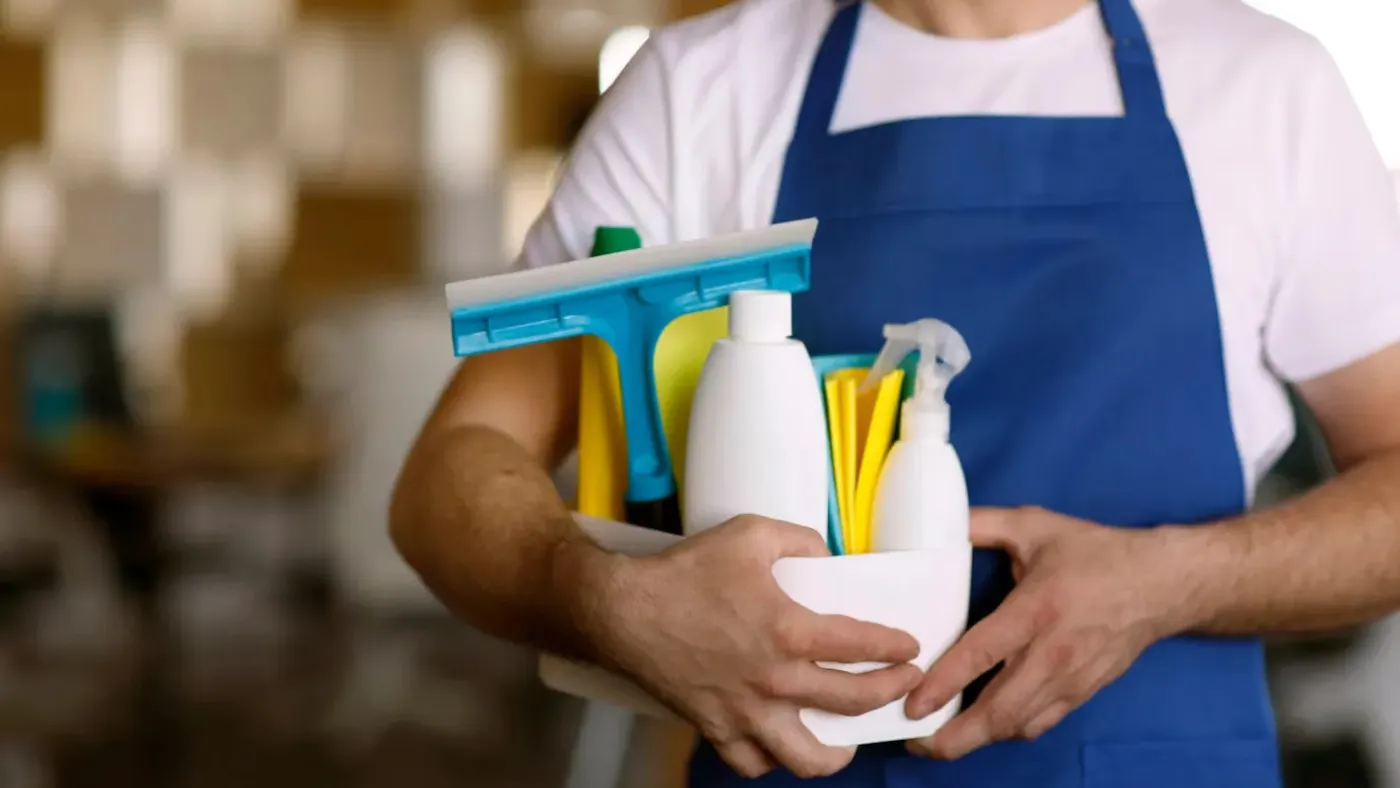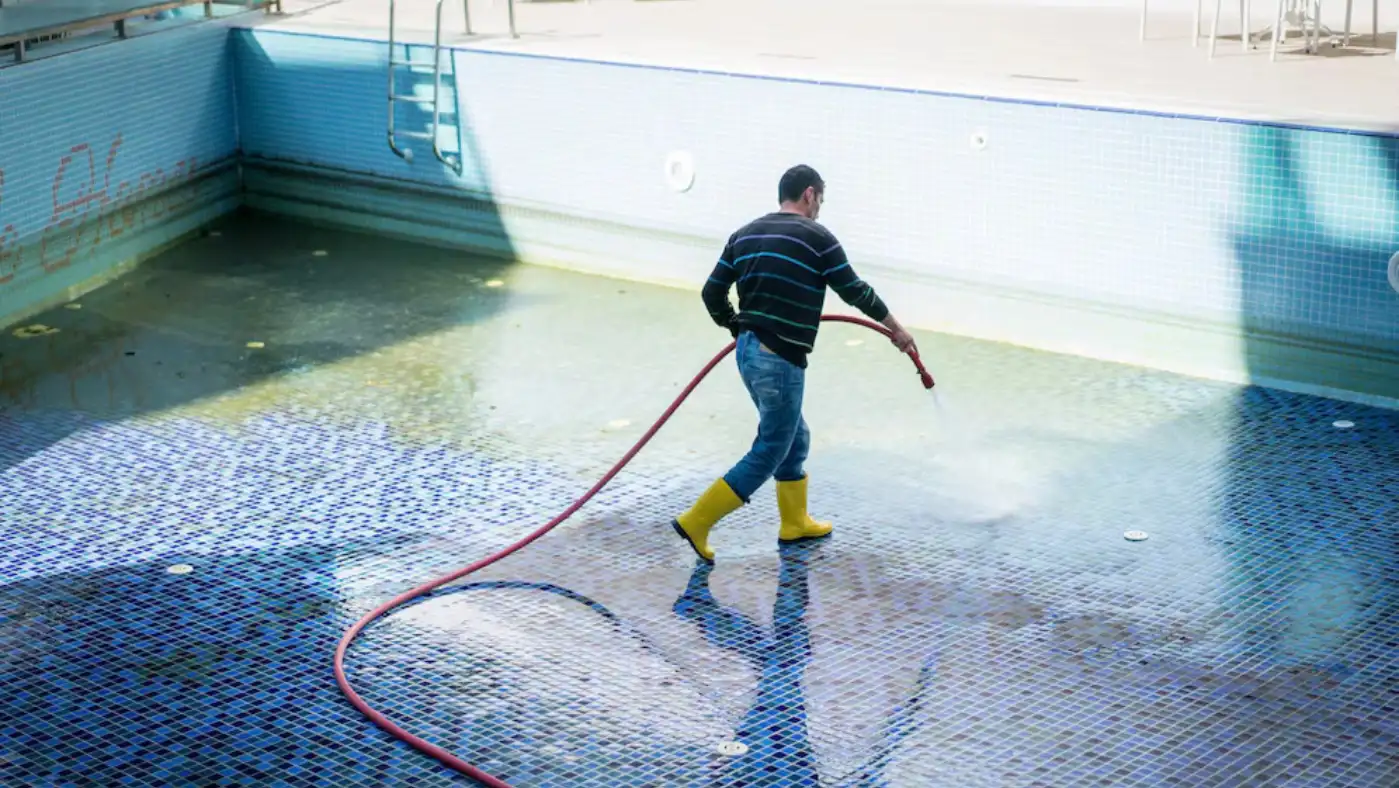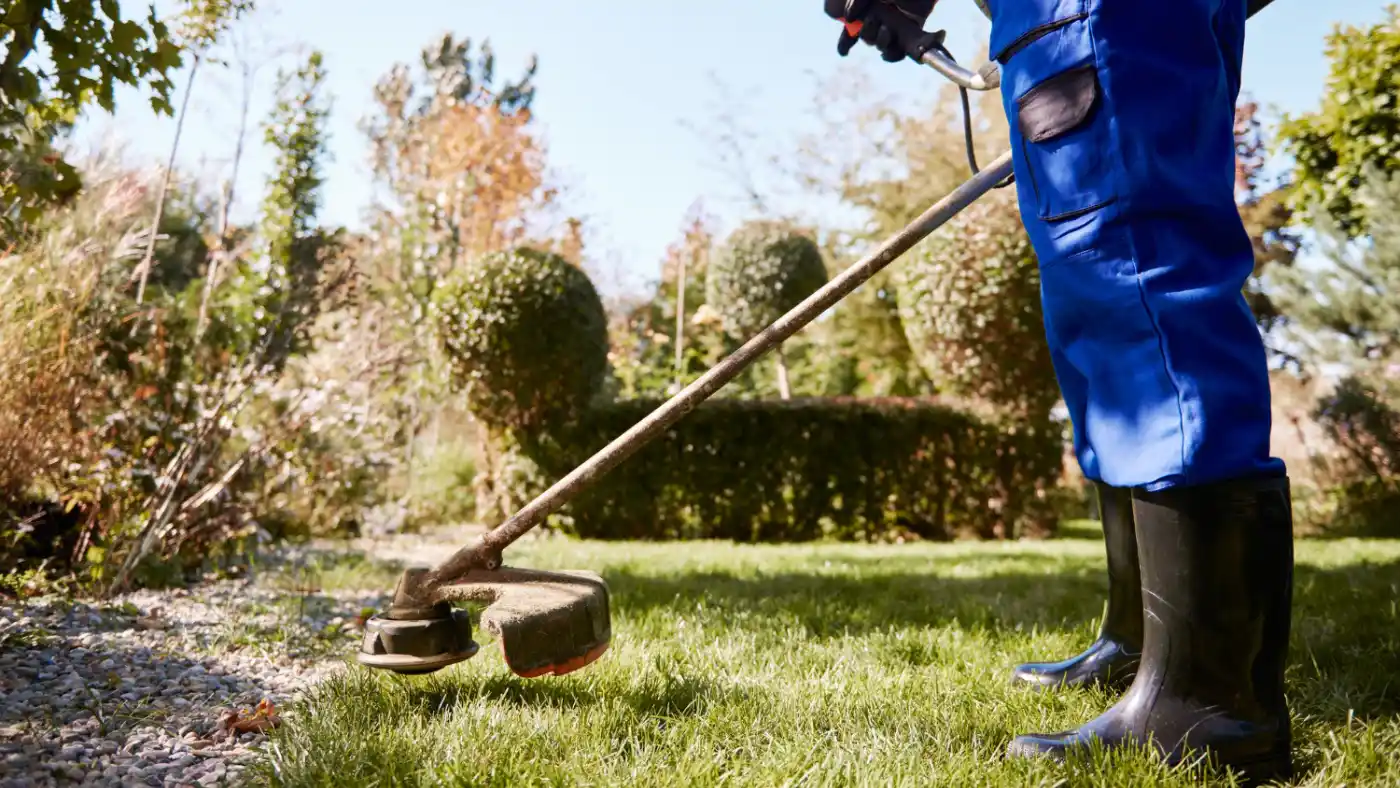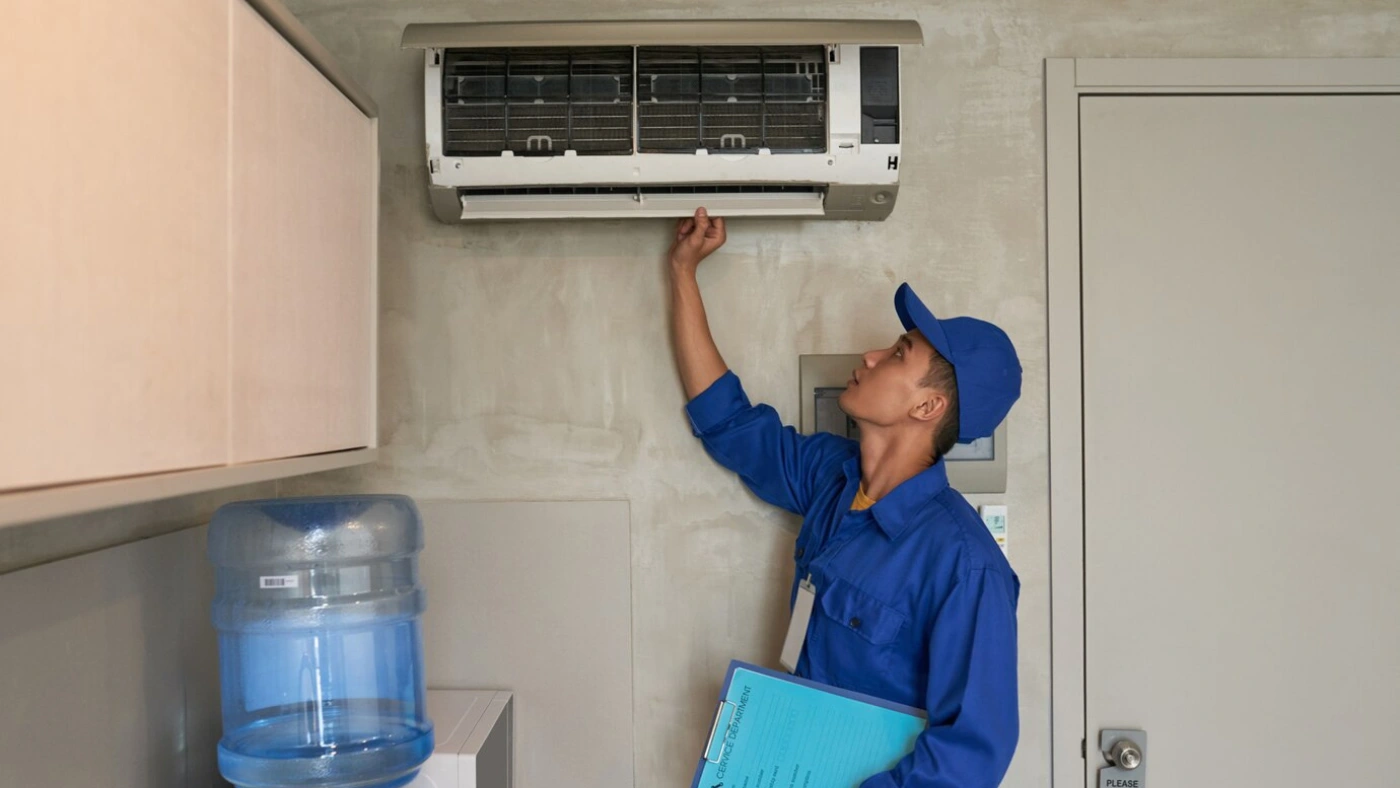
Bidding on commercial cleaning jobs can feel like an uphill battle, especially when your competition is willing to slash prices just to win. But here’s the thing: lowballing isn’t a growth strategy. It’s a fast track to burnout.
If you’re tired of chasing contracts only to barely break even, it’s high time for a smarter approach. One where you know your worth, price your services with confidence, and win long-term clients who see you as a partner.
This is your blueprint for doing exactly that. Here’s how to bid on commercial cleaning jobs without undercutting your value, losing your edge, or working yourself into the ground.
Learn How to Successfully Bid Commercial Cleaning Contracts
- How to Bid on Commercial Cleaning Jobs (Without Lowballing Yourself)
- 1. Ask Smart Questions Before You Bid
- 2. Measure Every Square Inch—Seriously, Don’t Guesstimate
- 3. Know Your Production Rate: How Long Does It Take You to Clean?
- 4. Build Your Bidding Formula (Not Someone Else’s Guess)
- 5. Know Your Hourly Rate—and Make Sure It Covers Everything
- 6. Create Recurring Service Schedules That Work for You and the Client
- 7. Follow Up (Because Silence Kills Sales)
- How to Write a Commercial Cleaning Bid That Sells the Job
- Where to Find Commercial Building Cleaning Jobs to Bid On
- Use Commercial Cleaning Business Software to Automate the Boring Stuff
- What to Avoid When Bidding for Commercial Cleaning Contracts
- Win More Bids Without Working Yourself to Exhaustion
How to Bid on Commercial Cleaning Jobs (Without Lowballing Yourself)
Bidding confidently isn’t always synonymous with offering the lowest price. Instead, it involves presenting your service as valuable and reliable, understanding the client’s needs, and pricing your cleaning services accurately.
1. Ask Smart Questions Before You Bid
Never go into a bid blindly. Always ask specific questions that paint a clear picture of the client’s expectations to avoid misunderstandings. For example:
- “How often do you require cleaning services?”
- “What issues did you face with your previous cleaning provider?”
- “Do you need specialized services like floor waxing, carpet cleaning, or window washing?”
These questions will help you better understand the scope of the job and, in turn, avoid pricing too high or too low or the dreaded scope creep.
2. Measure Every Square Inch—Seriously, Don’t Guesstimate
In the cleaning industry, precision is integral to profitable bids. While it might be easier to get a rough estimate of the area you’ll be expected to clean and provide an estimate based on that, you could lose out on money this way.
So, instead of guesstimating, always:
- Use a laser measuring device for accuracy.
- Clearly measure and document every space, including offices, kitchens, restrooms, and corridors.
- Base your bid directly on the calculated square footage.
This way, you know what areas the client expects you to clean and how big those areas are, and can price accordingly.
3. Know Your Production Rate: How Long Does It Take You to Clean?
You need to know how long it takes you to complete each task, on average, to ensure your bids are realistic and profitable. Your bids should account for how long it takes you to clean each space. For example, cleaning a corridor won’t typically take nearly as long as scrubbing a kitchen from cabinets to floors.
On average, commercial cleaning rates range from 3,000 to 4,000 square feet per hour, but that will vary dramatically based on what you’re cleaning. So, separate labor-intensive tasks like restrooms and kitchens from the easier ones, like break rooms and hallways. Track your actual cleaning times for each space type and regularly update your metrics based on what you find.
4. Build Your Bidding Formula (Not Someone Else’s Guess)
Your business is unique, so your bidding formula should be, too. What works for someone else might not work for you. So, build your own custom formula that accounts for the specifics of your offerings:
- Calculate: (Total square footage / production rate) x hourly rate.
- Add costs for supplies, travel time, taxes, overhead, and margin for growth.
- Round up to avoid barely breaking even.
This way, you can build your bids easily. Plug in the numbers based on your company and the job scope, then go from there.
5. Know Your Hourly Rate—and Make Sure It Covers Everything
You may or may not use hourly rates as part of your pricing model, but if you do, make sure it covers everything (we mean everything).
It should cover:
- Employee wages, benefits, and taxes
- Insurance premiums and equipment depreciation
- Administrative expenses
On average, cleaners charge between $25 and $75 per hour (per cleaner), but the cost varies based on the specifics of the job.
6. Create Recurring Service Schedules That Work for You and the Client
Don’t forget to clearly define how frequently your client needs your services. This is a must-do for both your business and your clients, whether they want daily, weekly, or monthly visits. Every arrangement should be outlined explicitly to avoid confusion or unmet expectations.
To keep track of things more easily, try software like Housecall Pro, which automates scheduling, ensuring appointments are regularly booked without manual intervention. The automated nature of the tool reduces errors, leaves more time for your team to focus on other tasks, and creates a predictable, hassle-free experience that clients value.
7. Follow Up (Because Silence Kills Sales)
There’s nothing worse than being left in the dark when you’re looking into a service or product. You have questions or want to book the service, but the provider goes totally radio silent. Don’t be that provider—you’ll kill your sales.
On the flip side, if the client doesn’t follow up immediately, it doesn’t mean they don’t want to book your services. Silence isn’t necessarily a definitive “no” in this situation.
So, stay on top of your follow-up game. This boosts your chances of raking in the bookings. You can do this by providing additional insights or bid adjustments (as needed) or by using automated follow-ups via email or text. This can help maintain client engagement and ensure they have the information they need to feel confident booking with you.
How to Write a Commercial Cleaning Bid That Sells the Job
Winning proposals are clear, concise, and professionally branded, so make sure yours fits the bill. Keep it clean, simple, and clear—leave the confusing jargon at the door. Use a branded bid template that looks crisp and professional (not a Word Doc you’ve resurrected from 1999).
Spell everything out in an easy-to-understand way, too. Show pricing, service frequency, and what’s included—with zero guesswork. It should tell your clients all they need to know without any unnecessary information that only causes clutter.
Where to Find Commercial Building Cleaning Jobs to Bid On
If you’ve previously focused on residential services, making the switch to the commercial side of the tracks can feel a bit daunting, especially when it comes to finding jobs to bid on. Like residential jobs, though, it’s all about looking in the right places.
Network with property managers, real estate agents, and commercial brokers who might need your services or can pass along your information to those looking. Take a look at bid boards like ServiceChannel, BuildingConnected, or even Thumbtack. Job quality and availability may vary, but you can find some solid leads here.
And if you want to make things even simpler, mesh Housecall Pro with Google Local Services for leads on autopilot.
Use Commercial Cleaning Business Software to Automate the Boring Stuff
As a cleaning business, you have better things to do than sit around building bids from scratch. So, free up bid-building time by using software built for commercial cleaners. Enter Housecall Pro. With this tool, you can:
Send Pro Estimates in Minutes (Not Hours)
Gone are the days of bouncing between spreadsheets and email threads to pull the information you need to build a bid. That’s time-consuming, tedious, and downright boring.
With Housecall Pro, you can create crisp, professional-looking estimates in just a few clicks. Use features like preloaded service line items—think bathroom sanitization, floor waxing, and trash removal—for common cleaning packages to make the process quick and easy.
Once you’ve built your estimate, send it out by email or text, and clients can approve it with a single tap. Talk about convenience!
Real-Time Scheduling That Keeps Your Crews (and Clients) Happy
Keeping track of what’s what in different apps is tough, especially when they’re incompatible. If you’re doing it manually, the chances of human error are there, and that opens the door to scheduling issues that frustrate both your team and clients.
With cleaning software, you can enjoy the convenience of a single app. Use the drag-and-drop scheduling feature that’s synced across your entire team to make sure everyone is on the same page. Techs can view their schedule, get directions, and check off jobs from the mobile app, updating the schedule in real time.
And if something changes, everybody gets notified immediately. No missed appointments, no crossed wires.
Turn One-Off Jobs into Recurring Revenue with Service Plans
Why chase new clients when you can keep the ones you already have? Sure, you can absolutely expand and grow, but why not make the most of the opportunities that are right in front of you?
Turn those one-off jobs into recurring service plans that lock in long-term contracts. That could be a bi-weekly cleaning, weekly visits, or even monthly cleanings, all with built-in payment schedules that keep your revenue flowing. Whatever you or your client chooses, Housecall Pro makes it easy to bill automatically, schedule crews, and track every visitor.
Invoicing That Handles Itself (So You Don’t Have To)
Invoicing often battles scheduling for first place in the tedious, not-so-fun admin tasks on your schedule. But with Housecall Pro, you can say goodbye to the late-night billing marathons. Now, you can automatically generate your invoices based on completed jobs.
Bill monthly, weekly, or per visit—it takes care of it all. You can accept those payments online, track unpaid invoices, and send automated payment reminders. All in the same app (did we already mention the convenience?).
Improve Your Online Reputation (Without Bugging Clients)
Your online reputation is a huge part of your success. While word of mouth is great, what people say online matters. So, boost your online presence and reputation by sending out review requests after each job.
Housecall Pro allows you to automate this process with its review management software, ensuring it’s not yet another task you have to add to your to-do list. And once you start getting those 5-star reviews (that you didn’t have to chase down), you get to enjoy the benefits of easier sales and higher bids that stick.
Get In Touch: 858-842-5746
Let us earn your trust
On average, Pros increase monthly revenue generated through Housecall Pro by 50% after their first year.
See plan options and feature breakdown on our pricing page.
What to Avoid When Bidding for Commercial Cleaning Contracts
Even the most experienced cleaning businesses can fall prey to common traps. Avoiding them isn’t just about saving money; it’s about protecting your reputation, your profit margins, and your ability to grow. So, do your business a favor and avoid:
1. Underpricing Just to Win a Job
While you might be tempted to slide in with the lowest bid to secure a contract, especially if you’re new or looking to scale quickly, it’s not a great idea. Underpricing, while it might not be so bad in the short term, often leads to long-term headaches.
When you undercut your own rates, you’re also taking away from your ability to pay your staff fairly, maintain your equipment, and deliver consistent quality. Worse, it creates a precedent that’s hard to come back from—clients might expect those same low rates forever.
So, instead, focus on communicating your value and backing it up with reliable service.
2. Skipping the Walk-Through
Virtual quotes and phone estimates might save you an hour or two upfront, but skipping the walk-through can cost you far more time later. Seeing the space in person helps you understand what you’re getting yourself into—the layout, usage patterns, and any special cleaning challenges.
A medical office, a warehouse, and a coworking space might all be 10,000 square feet, but cleaning each one has different cleaning needs and demands a different labor intensity. So, take the time to ask smart questions, build rapport with the client, and scope your work accurately in person.
3. Forgetting to Define What’s Not Included
A well-defined scope isn’t just about what’s included. It should also clearly state what isn’t. Too many cleaners run into issues with scope creep: the client assumes you’ll wash the windows, deep clean the grout, or wax the floors. They don’t know any better because it wasn’t explicitly excluded.
So, be extremely clear about both the inclusions and the exclusions. List any specific exclusions, such as interior window cleaning, high dusting, or seasonal deep cleans. This way, you set boundaries and protect your team from being overworked or underpaid. You can always offer those as add-on services later.
Win More Bids Without Working Yourself to Exhaustion
Here’s the truth: success in commercial cleaning doesn’t necessarily come from hustling harder. It comes from working smarter.
You don’t need to race after every lead or slash your prices to win. Instead, build systems that support your growth. Know your numbers cold—your production rate, your hourly rate, your margins. Ask strategic questions that position you as a problem-solver, not just a cleaner. And use software like Housecall Pro to take the tedious parts of the business off your plate.
With the right tools and a repeatable bidding process, you can confidently go after high-value jobs, close more deals, and build a business that doesn’t just survive, but thrives. This year, let your systems (not your stress) do the heavy lifting. Plan smart. Price right. Automate the rest. Now that’s a business plan.






